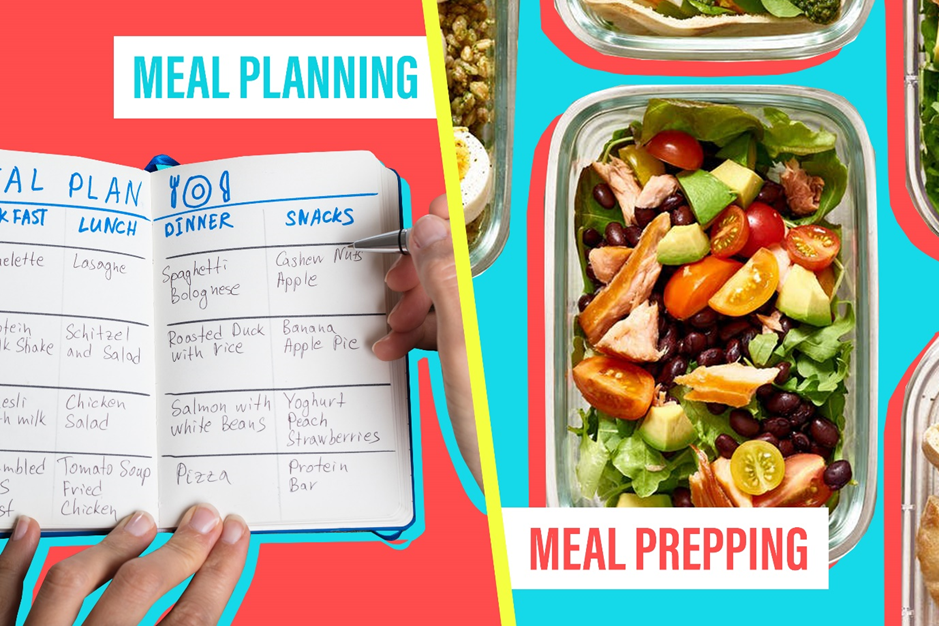Mastering Fast Food Culture: Strategies for Healthier Choices on the Go
Introduction
In the dynamic landscape of modern living, fast food has
seamlessly woven itself into the fabric of daily routines. Its convenience,
speed, and affordability make it an attractive choice for many navigating
hectic schedules. However, the ubiquity of fast food has ushered in a host of
dietary challenges, particularly when it comes to making healthier choices on
the go.
This blog aims to dissect the complexities of navigating the
fast food culture prevalent in our society today. From understanding the impact
of this culture on our dietary habits to providing actionable strategies for
making informed and healthier choices, this guide is designed to empower
individuals striving to balance convenience with well-being.
Join us on this exploration into the realm of fast food
culture, where we aim to equip you with practical tips and insights to help you
make more health-conscious decisions amidst the hustle and bustle of everyday
life.
Understanding Fast Food Culture
Fast food culture has become synonymous with modern living,
offering quick solutions to hunger pangs and time constraints. However, its
pervasive presence goes beyond mere convenience. This culture is marked by
certain characteristics that have a profound impact on our dietary behaviors
and overall health.
The allure of fast food lies in its accessibility,
affordability, and speed. Yet, these very traits often come at the cost of
nutritional value and health. Typically laden with high levels of sodium,
saturated fats, and sugars, fast food items contribute significantly to the
rise of obesity, cardiovascular diseases, and other health issues.
The convenience-driven nature of fast food, coupled with
aggressive marketing strategies, has ingrained this culture deeply into our
society. From eye-catching advertisements to the widespread availability of
drive-thru options, the influence of fast food is omnipresent, shaping our food
choices and preferences.
Understanding the pervasive impact of fast food culture is
the first step towards making more informed decisions about our dietary habits.
It prompts us to delve deeper into the reasons behind its prevalence and the
subsequent challenges it poses to our health.
The Health Implications
The consumption of fast food goes beyond momentary satisfaction, often leading to long-term health repercussions. The inherent nutritional shortcomings of these meals contribute significantly to various health issues prevalent in societies dominated by fast food culture.
Obesity, a primary concern, stems from the excessive intake
of high-calorie, low-nutrient fast food. This, in turn, becomes a precursor to
a multitude of health conditions, including diabetes, hypertension, and heart
disease. Studies consistently link frequent fast food consumption to an
increased risk of these chronic health issues.
Moreover, the addictive nature of certain components found
in fast food, such as sugars and fats, triggers patterns of overeating and
dependency. This perpetuates a cycle where individuals find themselves
grappling with cravings and struggling to break free from unhealthy dietary
habits.
Understanding the health implications of excessive fast food
consumption serves as a crucial wake-up call. It underscores the need for a
shift towards making more mindful and health-conscious choices, despite the
pervasive influence of fast food culture.
Strategies for Healthier Choices
Despite the dominance of fast food culture, making healthier choices is not an insurmountable task. Here are actionable strategies to help navigate fast-food menus more wisely:
- Menu
Scrutiny: Take time to peruse the menu for healthier options. Look for
grilled, steamed, or baked items instead of fried or heavily processed
choices.
- Portion
Control: Opt for smaller portions or kids' meals to manage calorie
intake. Avoid upsizing or supersizing meals, as they often come with
excessive calories and servings.
- Customization:
Don't hesitate to customize your order. Ask for salads with dressing on
the side, skip high-calorie condiments, or swap fries for a side salad or
fruit.
- Beverage
Choices: Beware of sugary drinks. Choose water, unsweetened tea, or
small-sized diet beverages instead of calorie-laden sodas or milkshakes.
- Balanced
Combos: If combos are unavoidable, balance them out. Pair a burger
with a side salad or opt for grilled chicken sandwiches over breaded ones.
- Mindful
Eating: Eat slowly and mindfully. Enjoy each bite, and pause between
bites to gauge satiety. Avoid mindless consumption.
These strategies empower individuals to make conscious
choices while dining at fast-food establishments, enabling them to prioritize
health without completely sacrificing convenience.
Meal Prep and Planning
Amidst the fast-paced nature of modern life, meal prep
emerges as a beacon of healthier eating habits. Taking the time to plan and
prepare meals in advance offers numerous benefits, particularly in steering
clear of the pitfalls of fast food.
- Time
Efficiency: Allocate a specific time each week for meal prep. Prepare
batches of nutritious meals, portion them, and store them for easy access
during busy days.
- Nutritional
Control: By preparing meals at home, individuals gain greater control
over ingredients and portion sizes, ensuring a balance of nutrients
essential for health.
- Cost
Savings: Meal prepping often proves more economical than frequenting
fast-food outlets, as bulk cooking minimizes expenses.
- Reduced
Temptations: Having pre-prepped meals readily available reduces the
temptation to opt for convenient, yet unhealthy, fast food choices.
- Variety
and Creativity: Experiment with diverse recipes and ingredients,
fostering culinary creativity and avoiding monotony in meals.
By embracing meal prep and planning, individuals can
proactively sidestep the need for fast food, making way for a healthier and
more intentional approach to eating.
Snack Alternatives and On-the-Go Options
Amidst the fast-paced lifestyle, having healthier snack alternatives readily available is crucial for steering clear of fast-food temptations. Here are some portable and nutritious options:
- Nuts
and Seeds: Carry a mix of unsalted nuts, seeds, and dried fruits for a
nutrient-rich and filling snack.
- Fresh
Fruit: Pack whole fruits like apples, bananas, or oranges for a quick
and natural energy boost.
- Greek
Yogurt Cups: Opt for single-serving Greek yogurt cups paired with
berries or a drizzle of honey for a satisfying snack.
- Vegetable
Sticks and Hummus: Pre-cut vegetables like carrots, cucumber, and bell
peppers with a side of hummus make for a crunchy and healthy snack.
- Whole
Grain Crackers with Cheese: Pack whole grain crackers with portioned
cheese slices or cheese cubes for a balanced snack.
- Protein
Bars or Granola Bars: Choose bars with minimal added sugars and
ingredients, providing a convenient on-the-go option.
Eating Out Mindfully
Dining out, especially at fast-food establishments, often leads to mindless eating and overconsumption. Employing mindful eating strategies can help individuals make conscious choices:
- Slow
Down: Take your time to savor each bite. Eating slowly allows your
brain to register satiety, preventing overeating.
- Portion
Awareness: Be mindful of portion sizes. Opt for smaller-sized meals or
consider sharing larger portions to manage calorie intake.
- Chew
Thoroughly: Chew food thoroughly and put down your utensils between
bites. This practice encourages mindful eating and aids digestion.
- Pause
and Assess: Take breaks during the meal. Check in with your hunger
cues to determine if you're truly hungry or simply eating out of habit.
- Engage
Your Senses: Appreciate the flavors, textures, and aromas of the food.
This fosters a deeper connection with your meal and promotes satisfaction.
- Stay
Hydrated: Drink water before and during the meal. Hydration can help
manage hunger and prevent overeating.
Practicing mindful eating when dining at fast-food
establishments allows individuals to enjoy their meals while being attentive to
their body's signals, leading to more conscious and healthier choices.
The Role of Moderation
While fast food often gets a bad rap, moderation can play a
pivotal role in maintaining a balanced approach to eating:
- Occasional
Indulgences: Allow yourself occasional treats or fast-food meals.
Enjoying them in moderation avoids feelings of deprivation and fosters a
sustainable approach to healthy eating.
- Mindful
Indulgence: When indulging, do so mindfully. Savor each bite, and be
conscious of portion sizes to avoid excessive consumption.
- Balancing
Choices: Balance occasional indulgences with overall healthy eating
habits. Incorporate nutritious meals and snacks into your routine to
counterbalance any indulgences.
- Consistency
over Perfection: Strive for consistency in making healthy choices
rather than aiming for perfection. A balanced and realistic approach is
key to long-term success.
Creating a Supportive Environment
- Surround
Yourself with Support: Seek encouragement from family, friends, or
online communities who share similar health goals. Supportive networks can
motivate and reinforce healthy habits.
- Lead
by Example: Encourage and involve others in your journey towards
healthier choices. Being a positive influence can inspire those around you
to adopt similar habits.
- Communication
is Key: Communicate your health goals with those around you. Clear
communication fosters understanding and support from peers and family
members.
- Adaptability
and Flexibility: Understand that not everyone may share the same
health goals. Embrace adaptability and flexibility while seeking support
from your environment.
Maintaining a balanced approach through moderation and
cultivating a supportive environment empowers individuals to navigate the
fast-food culture while prioritizing health and well-being.
Conclusion
In the whirlwind of fast-paced living, the ubiquity of fast
food has presented both challenges and opportunities for those striving for
healthier choices. We've explored the intricate facets of navigating this
culture, dissecting its impact and offering actionable strategies to make more
informed decisions.
Understanding the pervasive influence of fast food culture
has shed light on the necessity of making conscious choices. From mindful
eating to meal planning, we've unveiled a plethora of tools to empower
individuals in their quest for better health.
By recognizing the health implications, embracing
moderation, and creating supportive environments, individuals can steer their
health journey towards a more balanced and sustainable path. Making small,
mindful changes amidst the fast food culture can yield profound results in
fostering healthier habits.
We encourage you to implement these strategies, one step at
a time, integrating them into your daily routine. Prioritize your health
without compromising on the convenience you seek. Together, let's navigate the
fast food culture, making mindful choices that pave the way for a healthier and
more fulfilling lifestyle.







Comments
Post a Comment